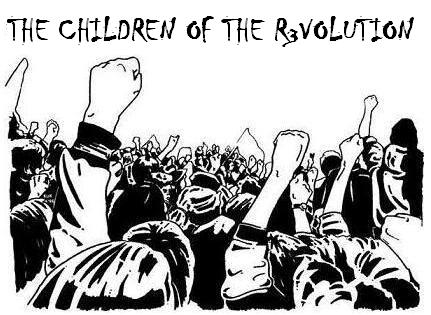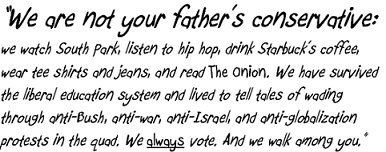BY CINCINNATUS
I
To the Editor of the New York Times Editorial Page:
I
In Response to "What's Our Line" by Michael Kinsley.
I
Michael Kinsley unnecessarily complicates the issue of detention vs. constitutional protection in the realm of anti-terror policy by arguing for the US border as a line of demarcation. Furthermore, he casually glosses over the fact that the United States is in fact at war with al Qaeda and other organized non-state actors by his suggestion that treating such non-uniformed enemy combatants (acting in clear violation of the Geneva Convention) caught on American soil as prisoners of war is a "judgment call."
I
I'll take the opportunity to clarify the issue for Mr. Kinsley. Foreign nationals that we are fortunate enough to detain on American soil prior to carrying out acts of terror warrant detention and interrogation, not constitutional protection. Doing so is to confer upon them a frivolous privilege, not a fundamental right. Mr. Kinsley equates Timothy McVeigh and Nidal Hasan with Umar Abdulmatallab and Khalid Shaikh Mohammed. This is not an apt comparison. McVeigh and Hasan were US citizens and, despite the acts they committed, were and are entitled to constitutional protections, including the right to an attorney, a civilian trial and the right to remain silent. Furthermore there is little evidence that McVeigh or Hasan were acting in concert with organized state or non-state actors or carrying out attacks as part of a larger conflict being waged against the United States. Is drawing such a line "absurd," as Mr. Kinsley suggests?
I
Clarity should be brought to the debate over civilian trials for captured enemy combatants as well. The concern is not chiefly that obviously guilty mass murderers will be let off on a technicality, although that is a remote but ugly possibility (particularly when suspects who had previously been held as enemy combatants are brought into civilian court), but that it misses a vital chance for intelligence gathering by allowing the suspects to hide behind the Fifth Amendment. When an opportunity to interrogate a terrorist who has either been detained prior to or, God forbid, after carrying out an attack on the United States presents itself, it should be taken. These individuals can provide some of the most crucial, usable intelligence available that will save lives.
I
As American citizens we must demand that our government maintain a coherent, consistent strategy to fulfill its constitutional obligation to protect us. Calling the means at hand to combat the existential threats to our liberty "absurd" is not useful, and suggests a lack of seriousness on the part of the one who does so.







No comments:
Post a Comment